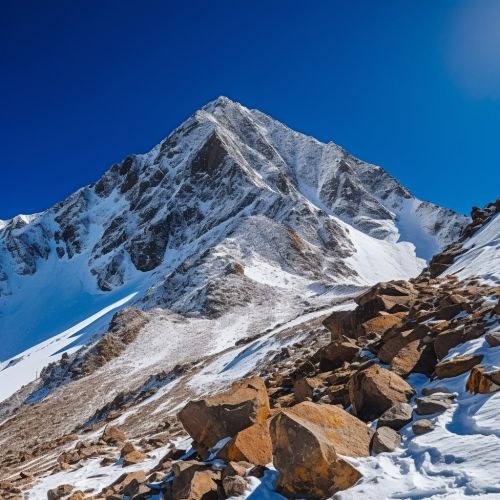Toubkal
Geography


Toubkal or Tubkal (Berber: ⵜⵓⴱⴽⴰⵍ, Arabic: توبقال) is a mountain peak in southwestern Morocco, located in the Toubkal National Park. At 4,167 metres (13,671 ft), it is the highest peak in the Atlas Mountains, North Africa and the Arab World.
Geology
The composition of Toubkal is primarily of sedimentary rock. The mountain is an example of a horst and is part of the Atlas Mountain Range. The range was formed during the late Paleozoic era, between 60 and 80 million years ago, by the collision of the African and Eurasian tectonic plates.
Climbing History
The first recorded ascent of Toubkal was by the Marquis de Segonzac, Vincent Berger and Hubert Dolbeau on 12 June 1923. Since then, it has become a popular destination for climbers and trekkers alike due to its challenging terrain and stunning views.
Climbing Routes
There are two main routes to the summit: the normal route and the northern circuit. The normal route starts from Imlil, heads into the Mizane Valley and ascends to the Toubkal Refuge. The northern circuit is longer and more challenging, but offers a more scenic journey.
Flora and Fauna
The lower slopes of Toubkal are home to a variety of plant species, including juniper and oak trees. Higher up, the vegetation becomes more sparse, with alpine plants such as edelweiss. The area is also home to a variety of wildlife, including the Barbary macaque and the Atlas mountain viper.
Climate
Toubkal has a highland climate, with cold winters and mild summers. Snowfall is common in the winter months, making the climb more challenging.
